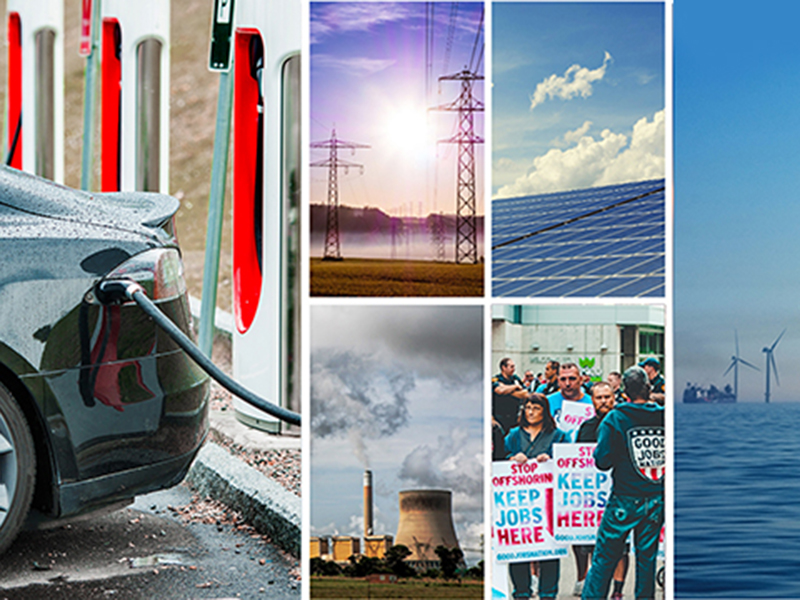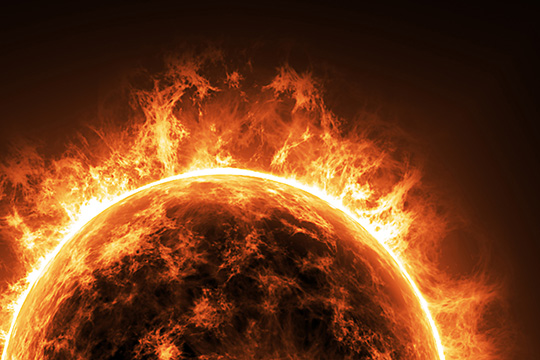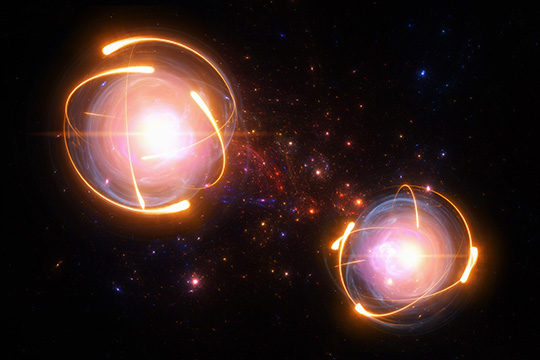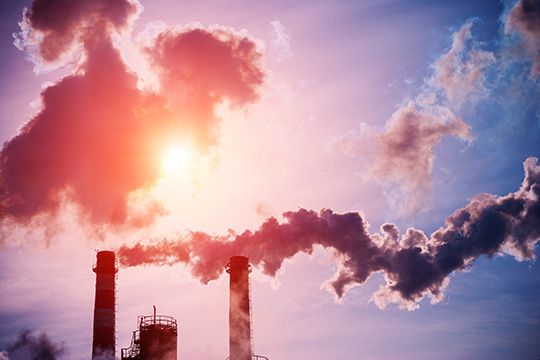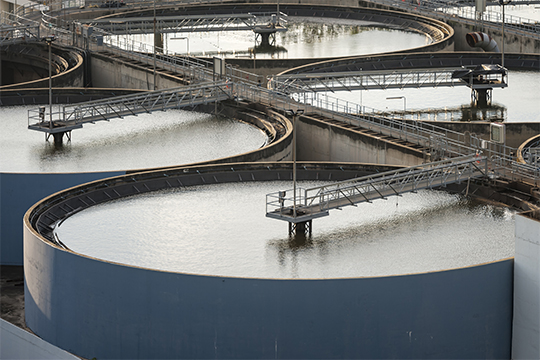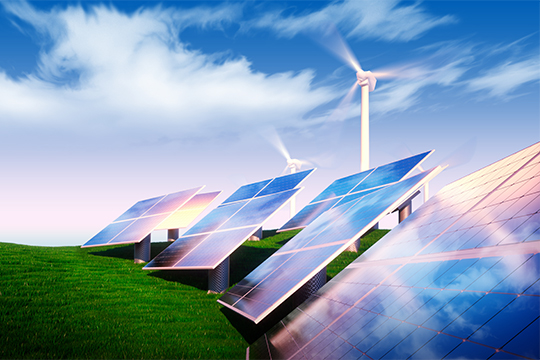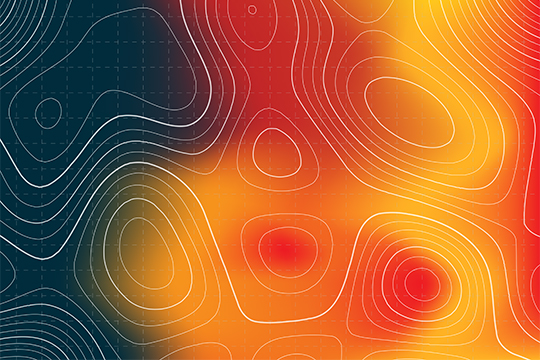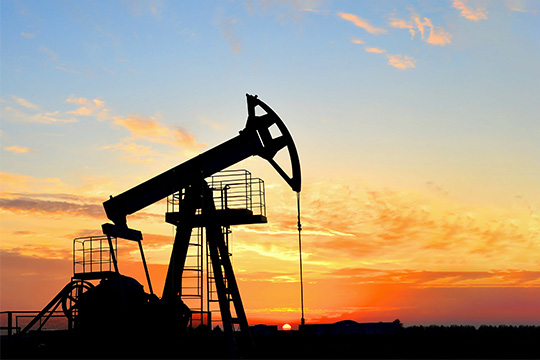Spring 2023 ENE Course Offerings
The Andlinger Center for Energy and the Environment is pleased to announce the following ENE courses for Spring 2023.
Rapid Switch: The Energy Transition Challenge to a Low-carbon Future
Christopher Greig, Eric Larson
ENE 372/EGR 372/ENV 372
The global consensus on climate risks demands a rapid switch to clean energy and industries. But few comprehend the unprecedented speed and scale of the needed transformations. Obstacles encountered during rapid, large-scale change, must be anticipated and addressed to achieve climate goals. Princeton’s recent Net-Zero America and (with others) Australia studies, provide granular insights on the speed of infrastructure delivery and on impacts to the environment, finances, jobs and more. Students will build on those studies to analyze sub-regional energy transitions through multi-disciplinary lenses to assure achievement of net-zero goals.
Electric Power: From Electronics to the Grid
Minjie Chen
ENE 373/ECE 373
This course provides a broad overview of power electronics and smart grids. We introduce the connection between Watts and Bytes in intelligently controlled power electronics and smart energy systems, develop a fundamental understanding about power electronics from devices, circuits, systems to control, and review operation principles of the modern energy systems from power generation, transmission, to utilization. Numerous examples will be presented, including power electronics for renewable energy systems, information systems, robotics, and transportation electrification. Students build a real power converter at the end of the course.
Introduction to the Electricity Sector-Engineering, Economics, and Regulation
Jesse Jenkins
ENE 422/MAE 422
This course provides an introduction to the electricity sector drawing on engineering, economics, and regulatory policy perspectives. It introduces the engineering principles behind various power generation technologies and transmission and distribution networks; the economics of electricity markets; and the regulation of electricity generation, transmission, distribution, and retail sales. Open challenges related to the growth of distributed energy resources, the transition to low-carbon electricity sources, and the role of the electricity sector in mitigating global climate change are also discussed.
Solar Conversion
Barry Rand
ENE 431/ECE 431/ENV 431/EGR 431
Principles and design of solar energy conversion systems. Quantity and availability of solar energy. Physics and chemistry of solar energy conversion: solar optics, optical excitation, capture of excited energy, and transport of excitations or electronic charge. Conversion methods: thermal, wind, photoelectric, photoelectrochemical, photosynthetic, biomass. Solar energy systems: low and high temperature conversion, photovoltaics. Storage of solar energy. Conversion efficiency, systems cost, and lifecycle considerations.
Introduction to the Electricity Sector-Engineering, Economics, and Regulation
Jesse Jenkins
ENE 522/MAE 533
This course provides an introduction to the electricity sector drawing on engineering, economics, and regulatory policy perspectives. It introduces the engineering principles behind various power generation technologies and transmission and distribution networks; the economics of electricity markets; and the regulation of electricity generation, transmission, distribution, and retail sales. Open challenges related to the growth of distributed energy resources, the transition to low-carbon electricity sources, and the role of the electricity sector in mitigating global climate change are also discussed.
ENE Cross-listed Courses for Spring 2023
The Science of Fission and Fusion Energy
Robert J. Goldston
AST 309/MAE 309/PHY 309/ENE 309
Power from the nucleus offers a low-carbon source of electricity. However, fission power presents risks: nuclear proliferation, accidents, attacks (c.f. Ukraine), and waste disposal. On the other hand, new designs promise improved safety and/or smaller unit sizes. Fusion carries less risk and R&D is making exciting progress. Furthermore, private companies are now promising to commercialize fusion in the 2030’s. We will delve into the scientific underpinnings of these two energy sources, strengthening your physical insight and mathematical and computational skills, and giving you the tools to assess these issues for yourselves.
Global Air Pollution
Mark A. Zondlo
CEE 311/CHM 311/GEO 311/ENE 311
Students will study the chemical and physical processes involved in the sources, transformation, transport, and sinks of air pollutants on local to global scales. Societal problems such as photochemical smog, particulate matter, greenhouse gases, and stratospheric ozone depletion will be investigated using fundamental concepts in chemistry, physics, and engineering. For the class project, students will select a trace gas species or family of gases and analyze recent field and remote sensing data based upon material covered in the course. Environments to be studied include very clean, remote portions of the globe to urban air quality.
Engineering Design for Sustainable Development
Siavash Isazadeh
CEE 477/ENE 477
This course will focus on the sustainable design of urban wastewater infrastructure. Students will learn the principals of biological wastewater modelling and will use software packages and other design tools for design and upgrading existing water/wastewater treatment systems, including new processes that incorporate energy and resource recovery. The projects are considered from concept development to detailed design with special considerations on sustainability and resilience. Guest speakers from academia and industry will be invited to present the new advancements in research and technology.
Energy for a Greenhouse-Constrained World
Julia Mikhailova
MAE 328/EGR 328/ENV 328/ENE 328
This course provides an overview of fundamental physical mechanisms behind sustainable energy technologies, including solar thermal, solar photovoltaic, wind, nuclear, and hydroelectricity. Physics of the greenhouse effect, projected Earth’s climate changes, as well as socio-economic impacts on energy uses and greenhouse-gas emissions are reviewed. Variability, dispatchability, and areal power density of energy resources are discussed. Energy efficiency, energy storage, as well as transmission and distribution of electric power are touched upon.
Heat Transfer
Daniel M. Nosenchuck
MAE 423/ENE 423
This course will cover fundamentals of heat transfer and applications to practical problems in energy conversion and conservation, electronics, and biological systems. Emphasis will be on developing a physical and analytical understanding of conductive, convective, and radiative heat transfer. Numerical methods will be introduced to simulate a variety of steady and unsteady heat transfer applications and will form the basis of the final project.
Energy Conversion and the Environment: Transportation Applications
Michael E. Mueller
MAE 427/ENE 427
Overview of energy utilization in and environmental impacts of propulsion systems for ground and air transportation. Roughly half of the course will be devoted to reciprocating engines for ground transportation, and the other half of the course will be devoted to gas turbine engines for air transportation. The course will focus on device efficiency/performance and emissions with future outlooks for improvements in these areas including alternative fuels and alternative device concepts. Relevant thermodynamics, chemistry, fluid mechanics, and combustion fundamentals will be reviewed or introduced and will permeate the course material.
Electrochemical Engineering
Kelsey B. Hatzell
MAE 438/ENE 438
This class goes over the fundamental electrochemistry in applied systems related to batteries, fuel cell, electrochemical fuel production, and supercapacitors. The class covers thermodynamics, kinetics, and transport related topics as they pertain to electrochemical systems. The context of this class overlaps with fundamental principles taught in chemical engineering, material science, mechanical engineering, and electrical engineering. The class has several hands-on laboratory exercises to review electrochemical characterization techniques: electrochemical impedance spectroscopy, chronoamperometry, galvanostatic cycling, cyclic voltammetry.
Combustion
Chung K. Law
MAE 531/ENE 531
Chemical thermodynamics and kinetics, oxidation of hydrogen, hydrocarbons and alternate fuels, pollutant chemistry and control, transport phenomena, laminar premixed and nonpremixed flames, turbulent flames, ignition, extinction, and flammability phenomena, flame stabilization and blowoff, detonation and blast waves, droplet, spray and coal particle combustion, principles of engine operation.
Electrochemical Engineering
Kelsey B. Hatzell
MAE 538/ENE 538
This class goes over the fundamental electrochemistry in applied systems related to batteries, fuel cell, electrochemical fuel production, and supercapacitors. The class covers thermodynamics, kinetics, and transport related topics as they pertain to electrochemical system. The context of this class overlaps with fundamental principles taught in chemical engineering, material science, mechanical engineering, and electrical engineering. The class has several hands-on laboratory exercises to review electrochemical characterization techniques: electrochemical impedance spectroscopy, chronoamperometry, galvanostatic cycling, cyclic voltammetry.
Oil, Energy and The Middle East
Bernard A. Haykel
NES 366/ENE 364/ENV 366
Overview of the issues surrounding global energy supplies, oil’s unique physical and economic properties, and its role in shaping the political economy of the Middle East and U.S. strategic interests in the region. Discuss availability of energy sources, the state of technology, the functioning of energy markets, the challenges of coping with global climate change and the key role of the oil reserves in the Middle East. Then focus on the history of oil in the Middle East and its impact on societies in the region.
